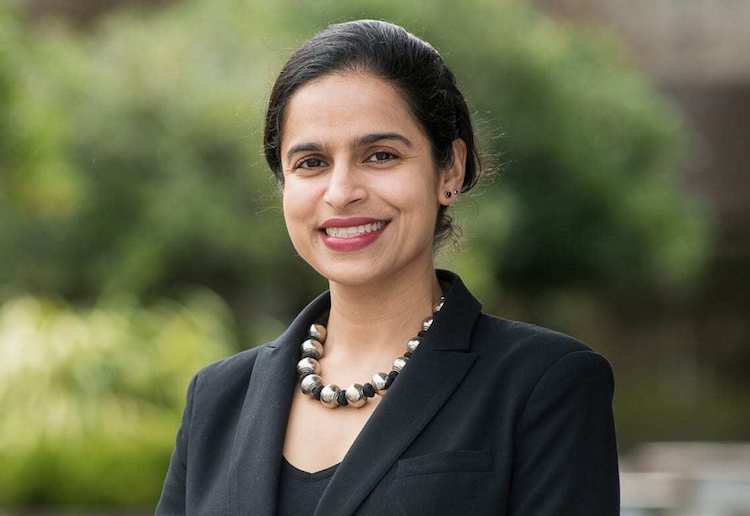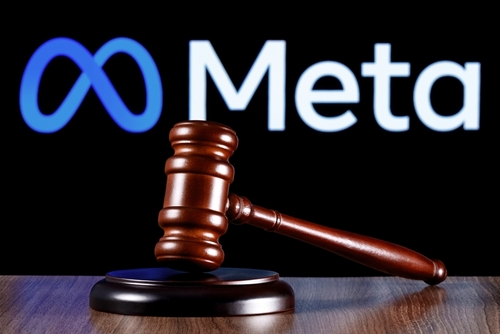What negotiating trauma looks like from both sides of the bench

Mallika Kaur.
As a human rights lawyer interested in the effects of trauma on those involved in the legal process, about seven years ago I began engaging with other lawyers on the idea of negotiating trauma. In this context, “trauma” refers to an overwhelming emotional experience that is accompanied by an actual or perceived lack of control. It can affect lawyers, clients, those in their communities and likely contributes to the cumulative toll of lawyering.
While wellness advice for lawyers often focuses on finding health and meaning outside the profession, I’ve sought out those who have found wonder at the resilience of the human spirit within the profession and have tried to better the profession rather than become fatalistic about its unhealthiness.
I recently sat down to speak with the trailblazing Judge Edward M. Chen of the U.S. District Court for the Northern District of California, who draws on decades of practice from both sides of the bench. Our discussion about systemic discriminations is particularly timely in light of recent violence against Asian American and Pacific Islander communities.
Mallika Kaur: Is there some part of you that you consciously quieten when you put on the black robe?
 Judge Edward M. Chen.
Judge Edward M. Chen.
Judge Edward Chen: The robe is black because it is supposed to symbolize the judge as being cleansed of any biases and personal feelings. … And although it is symbolic, there is something real when you don the robe, when you get on the bench and you have parties before you. There is a realization that you are vested with the power to decide the matter and with that the responsibility to exercise that power fairly and objectively. Yet I don’t think we can ignore the human instinct; it happens in every case. You may have a case where one side seems very sympathetic, but the law is not on their side. Or you may have a situation where the attorney is skirting the limit of integrity or competence, but they may well have a meritorious argument. So it’s not unusual to have those tensions internally so long as you know those tensions are there … and try to adhere as best as you can to your mission. As a judge, that mission is to be a fair and neutral arbiter.
Mallika Kaur: Your background as a civil rights attorney on the seminal Korematsu team (successful in overturning his World War II conviction for failure to comply with the Japanese internment order) is well-known. As an Asian-American, a Californian like Mr. Korematsu and many of your clients, what do you think is beneficial and what’s difficult about lawyers having shared histories and traumas with their clients?
Judge Edward Chen: I think there is an advantage to the extent that when you come from a shared experience, you don’t start at square one. … You have some trust, or at least it’s easier to build trust. It might be a shared experience like having lost a family member or having been harmed or injured in a similar way. Not just an ethnic shared experience, though that sometimes is the case. This is not to say that you cannot represent someone well without that shared experience, but it helps.
The downside is that it more likely can lead to taking losses personally. For example, I got interested in language discrimination at the ACLU not just because I felt the rise of the “English-only” rules threatened the right of non-native speakers to equal treatment, but because it hit close to home. I remembered the icy stares I would get from strangers when my grandmother or mother would talk to me in Chinese in public. I’ve had people come up and say, “Why don’t you speak English? What have you got to hide?” So I understood the clients I represented, their pain and humiliation. … And then if you don’t prevail, you feel that pain not just professionally but personally.
The highs are higher, the lows are lower. But at the end of the day, you are the lawyer and you have to make the best decision as their counsel. You may feel the client has been wronged, but you see the limitations of the evidence or the law and you may advise your client to settle even if in your heart it doesn’t feel like justice, because in your mind as a lawyer, you know that is the best decision.
Mallika Kaur: Today, it is easier to speak about the legal system’s complicated relationship with racial trauma. Thinking back to when these discussions were less open, were there times your identity made you question if the profession was the right fit for you?
Judge Edward Chen: When I got out of law school, my first job was as a law clerk in the court where I now sit. … There were very few people of color in chambers back then. And similarly, when I clerked for the 9th circuit there was little diversity. At the circuit law clerk orientation, I met one other Asian American. And then when I went to the law firm, I think I was the only minority attorney when I first joined. I was the first permanent staff lawyer of color at the ACLU office in San Francisco. So the feeling of being isolated, when people go into an institution where very few people who look like them, is something I understand. And with that comes the feeling that if you screw it up, you risk closing the door instead of opening it for others in the future. There is added pressure in that regard. But I never second-guessed my decision to become a lawyer. Even though there were times when I could feel somewhat marginalized and alienated, I also realized this was where I could make an impact, and I received incredible support from colleagues and mentors along the way.
Mallika Kaur: Could you tell us about what sort of work or case proved most difficult for you personally?
Judge Edward Chen: One of the most consequential cases I worked on was a death penalty case we took on as a habeas case. The weight of the stakes was enormous for me and the other attorneys. Our client was days away from being executed. We eventually prevailed in the 9th circuit. I remember just hours after I argued that case, I got sick. My body broke down from the stress.
The case that hit close to home was a Title VII challenge to speak-English-only rules in the workplace. And it was a case that proved precedential because it involved an interpretation of Title VII and whether it covered language-based discrimination. We lost in 9th circuit. And I have had to live with the weight of knowing I was in part responsible for setting precedent in language rights that was the opposite of what we were trying to accomplish.
Mallika Kaur: Years into the ups and downs of being a lawyer, and now as a judge, how do you not become jaded?
Judge Edward Chen: Well, a couple of things. One is that I never feel jaded about this job because I think it’s the most interesting job in the world. The variety of issues, cases, situations that we face in this district … I just find that stimulating. But the work that we get here tends to be complicated and the volume relentless. And that can take its toll. I have been working long hours for many months.
On the plus side, there’s tremendous collegiality on our court and that sustains me. Life would be a lot different if we didn’t have that.
As I discovered, our court has a number of musicians and singers, and we actually have a band that performs annually at the district conference. We spend quite a bit of time preparing for that appearance. It’s a great outlet and a way of seeing my colleagues and staff in a whole new light. I’ve always loved listening to and playing music.
Mallika Kaur: Taking a break looks different for different people. For you, what constitutes a rejuvenating break?
Judge Edward Chen: Some of my colleagues can literally go into the mountains where there’s no signal and stay out of reach days. … Regrettably, I haven’t found the ability to do that. Even if I am in a foreign country or somewhere on a river cruise, as much as I may try, I cannot completely divorce myself from work, at least not given the current caseload. Though I do try to dial it down. My wife and kids and I love Hawaii. One time I was there and we were under time pressure to get out an order which ended up being 80 pages, and I was going back and forth with my law clerk, working on a dining room table in a condo. But when you look out to the palm trees and you’re listening to Hawaiian music, and you know that you can take a break and walk to the beach, it’s still refreshing. It probably would be healthier if I just turn it all off. But … just being somewhere different, enjoying that moment makes a big difference and is rejuvenating enough to keep me going.
Mallika Kaur is a lawyer and writer who focuses on human rights, with a specialization in gender and minority issues. She is the author of the new book Faith, Gender, and Activism in the Punjab Conflict: The Wheat Fields Still Whisper. She teaches social justice classes, including Negotiating Trauma, at the University of California at Berkeley School of Law.



